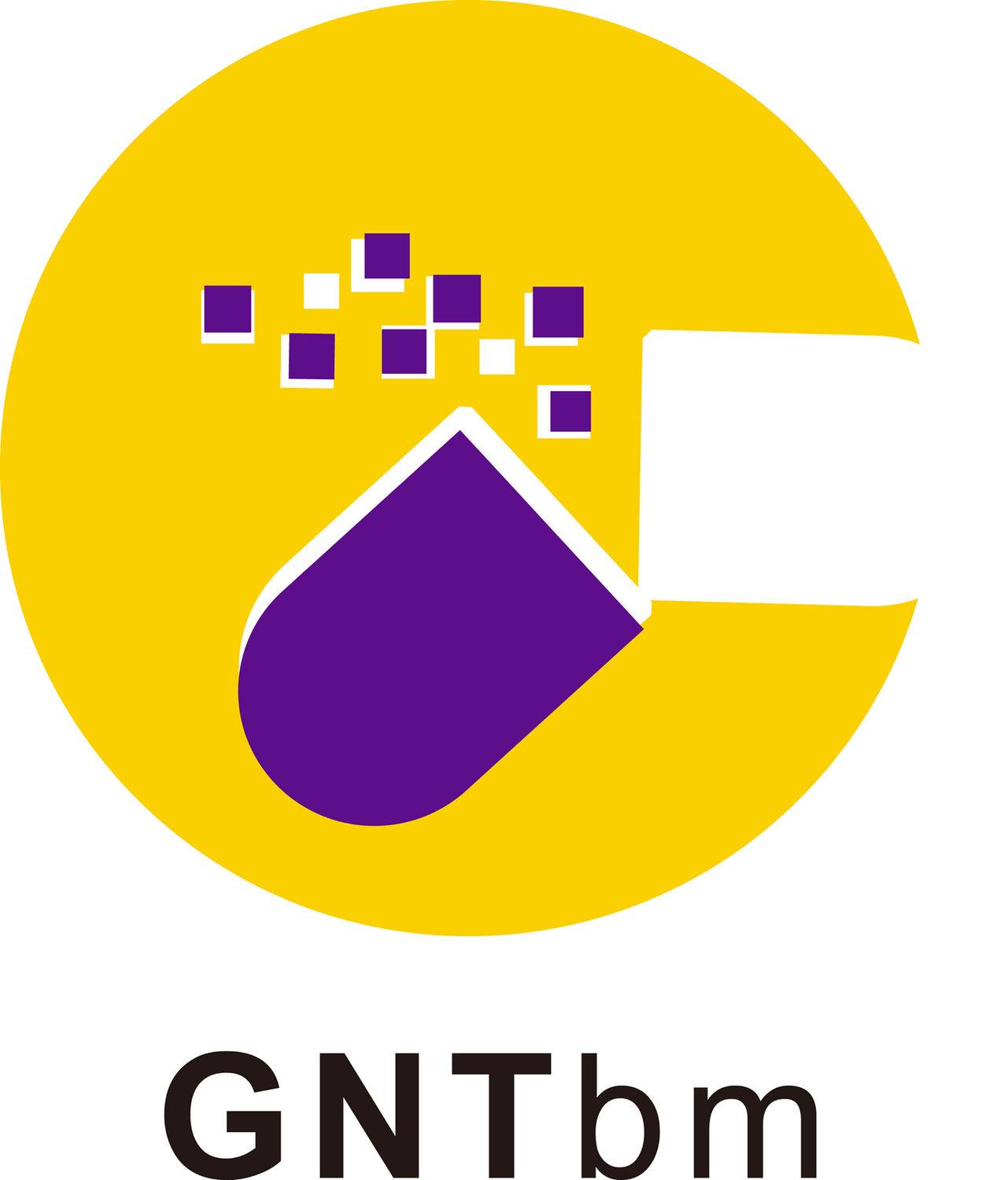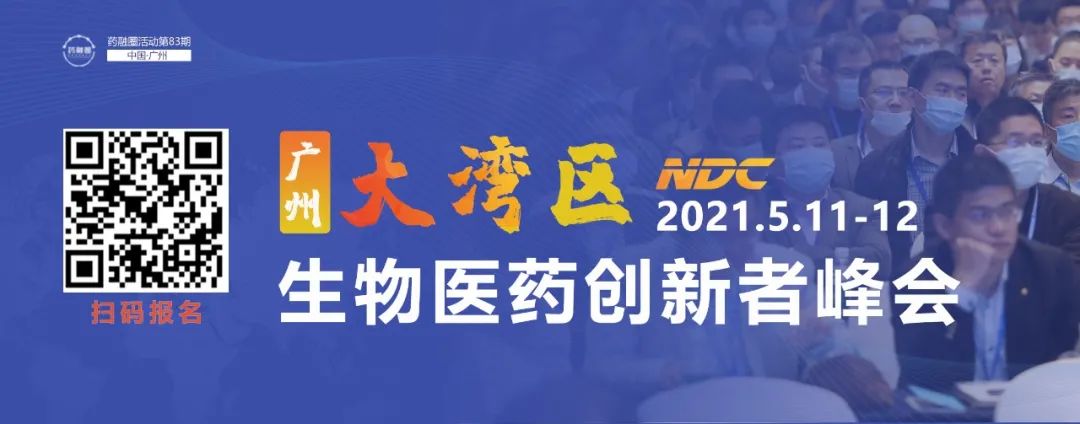预约演示
更新于:2025-12-09

Great Novel Therapeutics Biotech & Medicals Corp.
更新于:2025-12-09
概览
标签
肿瘤
消化系统疾病
皮肤和肌肉骨骼疾病
小分子化药
生物药
疾病领域得分
一眼洞穿机构专注的疾病领域
暂无数据
技术平台
公司药物应用最多的技术
暂无数据
靶点
公司最常开发的靶点
暂无数据
| 排名前五的药物类型 | 数量 |
|---|---|
| 小分子化药 | 6 |
| 生物药 | 1 |
| 排名前五的靶点 | 数量 |
|---|---|
| HDAC1 x HDAC2 x HDAC3 | 1 |
| TNF x TNFR2 | 1 |
| HDACs(组蛋白去乙酰化酶家族) | 1 |
关联
7
项与 华上生技医药股份有限公司 相关的药物靶点 |
作用机制 HDAC抑制剂 [+1] |
在研机构 |
原研机构 |
在研适应症 |
最高研发阶段批准上市 |
首次获批国家/地区 中国 |
首次获批日期2014-12-23 |
靶点- |
作用机制- |
在研机构 |
原研机构 |
在研适应症 |
非在研适应症- |
最高研发阶段临床1/2期 |
首次获批国家/地区- |
首次获批日期- |
靶点- |
作用机制- |
在研机构 |
原研机构 |
在研适应症 |
非在研适应症- |
最高研发阶段临床1期 |
首次获批国家/地区- |
首次获批日期- |
2
项与 华上生技医药股份有限公司 相关的临床试验NCT05833724
A Phase II, Open-label, Single-arm, Multicenter Study of Chidamide in Patients With Relapsed or Refractory Peripheral T-cell Lymphoma
This is a phase II, open-label, non-randomized, single-arm, multicenter study to evaluate the efficacy, safety, and PK of chidamide in patients with R/R PTCL.
开始日期2024-10-18 |
申办/合作机构 |
NCT05770882
A Phase Ib/II, Two-part, Non-randomized, Open-label Study to Evaluate the Safety, Tolerability, Efficacy, and Pharmacokinetics of Chidamide in Combination With Regorafenib in Patients With Hepatocellular Carcinoma
This open-label, phase Ib/II, multicenter study evaluated the safety, tolerability, efficacy, and PK of chidamide in combination with regorafenib in patients with HCC. Chidamide, a histone deacetylase inhibitor, functions as a tumor inhibitor. Regorafenib, a receptor tyrosine kinase inhibitor, was approved as second-line systemic treatment for HCC patients.
开始日期2023-04-25 |
申办/合作机构 |
100 项与 华上生技医药股份有限公司 相关的临床结果
登录后查看更多信息
0 项与 华上生技医药股份有限公司 相关的专利(医药)
登录后查看更多信息
2
项与 华上生技医药股份有限公司 相关的文献(医药)International journal of molecular sciences
Chidamide plus Tyrosine Kinase Inhibitor Remodel the Tumor Immune Microenvironment and Reduce Tumor Progression When Combined with Immune Checkpoint Inhibitor in Naïve and Anti-PD-1 Resistant CT26-Bearing Mice
Article
作者: Chu, Sz-Hao ; Wu, Yi-Hong ; Chen, Jia-Shiong ; Chou, Cheng-Han ; Chen, Chia-Nan ; Hsieh, Yi-Chien ; Chao, Ye-Su ; Yang, Mu-Hsuan
Combined inhibition of vascular endothelial growth factor receptor (VEGFR) and the programmed cell death protein 1 (PD-1) pathways has shown efficacy in multiple cancers; however, the clinical outcomes show limited benefits and the unmet clinical needs still remain and require improvement in efficacy. Using murine colon carcinoma (CT26) allograft models, we examined the efficacy and elucidated novel tumor microenvironment (TME) remodeling mechanisms underlying the combination of chidamide (a benzamide-based class l histone deacetylase inhibitor; brand name in Taiwan, Kepida®) with VEGF receptor tyrosine kinase inhibitor (TKIs; cabozantinib/regorafenib, etc.) and immune checkpoint inhibitors (ICIs; anti-PD-1/anti-PD-L1/anti-CTLA-4 antibodies). The TME was assessed using flow cytometry and RNA-sequencing to determine the novel mechanisms and their correlation with therapeutic effects in mice with significant treatment response. Compared with ICI alone or cabozantinib/regorafenib + ICI, combination of chidamide + cabozantinib/regorafenib + ICI increased the tumor response and survival benefits. In particular, treatment of CT26-bearing mice with chidamide + regorafenib + anti-PD-1 antibody showed a better objective response rate (ORR) and overall survival (OS). Similar results were observed in anti-PD-1 treatment-resistant mice. After treatment with this optimal combination, in the TME, RNA-sequencing revealed that downregulated mRNAs were correlated with leukocyte migration, cell chemotaxis, and macrophage gene sets, and flow cytometry analysis showed that the cell numbers of myeloid-derived polymorphonuclear suppressor cells and tumor-associated macrophages were decreased. Accordingly, chidamide + regorafenib + anti-PD-1 antibody combination therapy could trigger a novel TME remodeling mechanism by attenuating immunosuppressive cells, and restoring T-cell activation to enhance ORR and OS. Our studies also showed that the addition of Chidamide to the regorafenib + anti-PD-1 Ab combination could induce a durable tumor-specific response by attenuating immune suppression in the TME. In addition, this result suggests that TME remodeling, mediated by epigenetic immunomodulator combined with TKI and ICI, would be more advantageous for achieving a high objective response rate, when compared to TKI plus ICI or ICI alone, and maintaining long-lasting antitumor activity.
Scientific reports3区 · 综合性期刊
CC-01 (chidamide plus celecoxib) modifies the tumor immune microenvironment and reduces tumor progression combined with immune checkpoint inhibitor
3区 · 综合性期刊
ArticleOA
作者: Chu, Sz-Hao ; Chou, Cheng-Han ; Wu, Yi-Hong ; Chen, Jia-Shiong ; Chen, Chia-Nan ; Chao, Ye-Su ; Yang, Mu-Hsuan
Abstract:
Immune checkpoint inhibitors (ICIs) have shown clinical benefit in solid tumors, with modest rates of clinical response. Hence, improved therapeutic approaches need to be investigated. Herein, we assessed a combination of chidamide plus celecoxib (called CC-01) combined with programmed cell death protein 1 (PD-1) blockade in a CT26 model as potent tumor microenvironment (TME) regulator. The antitumor activity was assessed by measuring tumor size, overall response rate, and survival rate. Immune profiling of tumor-infiltrating lymphocytes was performed by flow cytometry. Tumor tissues were assessed by chip assay to predict the possible pathway. Tumor size was significantly reduced in mice treated with CC-01 combined with or without anti-PD-1 antibody, however the triple combination therapy consistently demonstrated that it significantly increased both the ORR and survival rate in term of clinical applications. In the combination group, immune landscape profiling revealed decreased populations of immunosuppressive regulatory T cells, myeloid-derived suppressor cells, and tumor-associated macrophages. Analysis of the mouse tumor chip data using Gene Ontology enrichment analysis of biological processes revealed that the triple combination upregulated genes associated with responses to interferon-gamma. Our results demonstrated that CC-01 possessed potent TME regulatory properties, augmenting the antitumor effect when combined with ICIs. This antitumor effect was achieved by altering the immune landscape in TILs (tumor-infiltrating lymphocytes) and was associated with immune cell activation in the TME. Furthermore, CC-01 demonstrated potent anticancer immune response activity, mainly reducing the number and function of several immunosuppressive cells. The combination of CC-01 with an ICI will further enhance the anticancer effect and boost the immune response rate. Collectively, our results support the clinical evaluation of CC-01 in combination with ICIs in several advanced cancers.
3
项与 华上生技医药股份有限公司 相关的新闻(医药)2025-05-23
TAIPEI, May 22, 2025 /PRNewswire/ -- GNTbm (stock code: 7427, Taiwan) announced the preclinical data on GNTbm-38, an novel epigenetic immune activator for cancer immunotherapy. GNTbm-38 was presented as posters at the 2025 American Association of Clinical Oncology (ASCO) Annual Meeting, which is held in Chicago, USA, from May 30 to Jun 04, 2025.
Abstract: 2574
Title: Preclinical development of GNTbm-38, a novel class I histone deacetylase inhibitor, while combined with anti-VEGFR TKI or anti-PD-1 Ab: Assessment of immune activation and immune memory in cancer immunotherapy.
Session Date/Time: 6/2/2025, 1:30 PM-4:30 PM CT
Poster Board Number: 221
At present, there is no ICI-based drug combination for the treatment of advanced MSS colorectal cancer, which is a cold tumor. Studies have shown that epigenetic regulators such as class I HDAC inhibitors are an emerging and important drug component for combination therapy that can greatly increase the anti-cancer benefits of cancer immunotherapy. Therefore, rational drug combinations, containing class I HDACi, may provide opportunities in cancer immunotherapy.
GNTbm-38 is a new drug candidate independently developed by GNTbm. GNTbm-38 acts as a TME reprogramming regulator in immunotherapy. When combined with TKI, GNTbm-38 significantly improved tumor response rate and survival rate through synergistic effect by normalizing tumor vessels, increasing tumor antigen presentation, increasing activated CD8+ T cell infiltration into tumors, inducing memory T cell persistence, and inhibiting mobilization of immunosuppressive cells into tumors. On the other hand, treatment with GNTbm-38 plus anti-PD-1 antibody in the CT-26 model showed greatly improved tumor response rate and survival rate with a strong synergistic effect. Furthermore, in B-hPD-1/hPD-L1 mice (humanized model) subcutaneously injected with B-hPD-L1 CT-26 cells, treatment of pembrolizumab and GNTbm-38 resulted in a 46.5% inhibition on tumor growth. Therefore, our data provided a strong rationale to explore the combination of GNTbm-38 with anti-VEGF TKI with or without ICI. From these data GNTm-38 has been shown to display powerful induction of immune activation and immune memory in combination therapy with TKI/ICI against colon CT-26 cold tumor. Based on the in vitro, in vivo and preclinical studies, these data show that GNTbm-38 exhibits markedly superior pharmacokinetics, tolerability, and efficacy in animal models. It is expected to complete the US IND application by the end of 2025 and enter the clinical study.
About GNTbm-38
GNTbm-38 is a new chemical entity with potential as a pivotal drug component of a new generation of cancer immunotherapy independently developed by GNTbm. It is a drug candidate selected by an immuno-competent tumor-bearing animal testing platform, and has undergone many preclinical research studies to confirm that it has very outstanding anti-cancer activity in tumor microenvironment. GNTbm-38 is an oral drug with dual effects of epigenetic regulation of gene expression and immune activation, which is unique when compared to the mechanism of other epigenetic drugs. GNTbm-38 can remodel the tumor microenvironment (TME) through a unique epigenetic regulatory mechanism, including the cell composition and gene expression that affect the TME, so that "cold tumors" can be transformed into "hot tumors", which can attract CTL to infiltrate into the TME, and at the same time, it can also reduce the attraction of immunosuppressive cells (such as : TAM, Treg, and MDSCs) into the TME, so as to achieve the remodeling of the TME, which is more conducive to obtaining the therapeutic benefits of cancer immunotherapy. GNTbm-38 monotherapy can be used in the treatment of hematological tumors, and GNTbm-38 can also be combined with a unique multi-kinase inhibitor or immune checkpoint inhibitor for treatment of a variety of solid tumors, mainly through a unique anti-cancer immune-regulating mechanism to achieve anti-cancer treatment goals.
About GNTbm
GNTbm (stock code: 7427, Taiwan) is a company that has conducted clinical trials and developed a new drug against advanced breast cancer on the market in Taiwan. The GNTbm R&D team has the ability to independently develop new drugs, and has multiple anti-cancer drug candidates with global development rights, with the goal of meeting the unmet clinical needs of patients with advanced cancers. GNTbm mainly focuses on the development of drugs with innovative mechanisms for the new generation of cancer immunotherapy, conducts clinical validation, and hopes to successfully provide novel immunotherapy with excellent efficacy and safety for varieties of cancer indications, to fulfil the unmet medical needs of patients around the world and improve the quality of life of patients.
SOURCE Great Novel Therapeutics Biotech & Medicals Corporation
WANT YOUR COMPANY'S NEWS FEATURED ON PRNEWSWIRE.COM?
440k+
Newsrooms &
Influencers
9k+
Digital Media
Outlets
270k+
Journalists
Opted In
GET STARTED
免疫疗法ASCO会议
2023-03-13
点击蓝字GBIHealth关注我们SUBSCRIBE to us药讯精选GBI NEWS微芯生物HDAC抑制剂西达本胺于中国台湾获批乳腺癌适应证深圳微芯生物科技股份有限公司合作方华上生技医药股份有限公司宣布,收到中国台湾卫生福利部食品药物管理署(TFDA)关于西达本胺(中国台湾名称:剋必达锭、Kepida tablets)的核准函,获核准适应证为联合依西美坦(exemestane)用于激素受体阳性、人表皮生长因子受体-2(HER2)阴性,经内分泌治疗后复发或恶化的绝经后局部晚期或转移性乳腺癌妇女。西达本胺(Chidamide;商品名:爱谱沙/Epidaza)是微芯生物原研的1类新药。作为全球首个亚型选择性组蛋白去乙酰化酶(HDAC)抑制剂,西达本胺对肿瘤抑制性免疫微环境具有重新激活作用,可单药或联合其他药物用于多种恶性肿瘤。**关注GBISOURCE数据库公众号在线查看新闻详情企业动态GBI NEWS瓴路药业与高博医疗集团达成细胞治疗药物战略合作瓴路药业(上海)有限责任公司与高博医疗集团签署战略合作协议,瓴路药业将与高博协助推进瓴路药业在细胞治疗药物的转化医学研究与临床研究。瓴路药业瞄准通用型CAR-T药物前沿赛道,所采用技术具备高度创新性,从实验室走向临床是新药上市的必经之路,如何加快创新成功的医学转化,及早惠及患者,充分依托临床资源的优势至关重要。高博作为临床驱动型创新医疗科技平台,可以为瓴路药业选择性提供临床研究资源规划、注册医学策略、项目管理及临床运营、数据管理与统计分析、第三方稽查、药物警戒、医学监查、中心实验室(Core-Lab)、中心影像(IRC)等临床研究服务,全面赋能瓴路药业,加速药物研发,支持更多创新药早日上市,惠及患者。**关注GBISOURCE数据库公众号在线查看新闻详情1.275亿美元!丽珠医药获Onconic钾离子阻滞剂大中华区权益丽珠医药集团股份有限公司发布公告称,与韩国Onconic Therapeutics Inc.就后者开发的Zastaprzan签署了一项在大中华区的独占许可授权协议。根据协议,丽珠医药获得在中国大陆和港澳台内开发、制造和商业化钾离子竞争性酸阻滞剂 (P-CAB)Zastaprazan的权利,公司将向Onconic支付1500万美元不可退回的首付款,在许可产品开发及上市销售阶段,将向Onconic支付技术转移费用、相应的开发里程碑及销售里程碑金共计不超过1.125亿美元。许可产品在许可区域获批上市销售后,丽珠医药应根据协议向Onconic支付相应的销售提成。**关注GBISOURCE数据库公众号在线查看新闻详情正大天晴与晶泰科技肿瘤药物合作达成第二阶段里程碑正大天晴药业集团与晶泰科技就创新高选择性小分子抗肿瘤药物合作研发项目第二阶段里程碑达成一致:在正大天晴内部新药创新平台和晶泰科技人工智能药物发现平台共同努力下,双方充分发挥技术优势,设计的化合物符合约定的验收标准,顺利达成第二阶段Pre-PCC(PCC:临床前候选分子)里程碑。2022年初,正大天晴与晶泰科技就高难度激酶靶点开发同类最优(Best-in-Class)的小分子药物达成合作意向。该合作依托正大天晴内部小分子创新药物合成和筛选评价平台,以及晶泰人工智能小分子药物发现平台ID4Inno,致力于提高研发创新效率,加快创新药上市。项目进程中,第一个里程碑达成时间比原计划缩短了50%,为项目加快推进奠定了良好基础;在此基础上,项目又于近日达成了Pre-PCC里程碑阶段的研发目标。**关注GBISOURCE数据库公众号在线查看新闻详情联系我们投稿 & 发稿/ 媒体合作▶▶ 任何关于投稿、企业发稿、媒体合作事宜请联系:sylvia.hua@generalbiologic.com或致电:+86 21 5302 2951 ext.68订阅及或定制“新闻资讯”▶▶ 点击左下“阅读原文”,并完成表单填写,查看更多药品、竞品、政策等行业资讯点击 阅读原文 定制/订阅医疗行业新闻资讯
细胞疗法引进/卖出免疫疗法临床研究
2021-03-02
·药融圈
▲速抢免费参会名额 | 大湾区(广州)生物医药创新者峰会
注:本文不构成任何投资意见和建议,以上市公司公告为准;本文仅作医疗健康相关药物介绍,非治疗方案推荐。
公司简介
深圳微芯生物科技股份有限公司(股票代码:688321.SH)是由资深留美归国团队于2001年创立的现代生物医药企业。微芯生物专长于原创新分子实体药物研发,具备完整的从药物作用靶点发现与确证、先导分子发现与评价到新药临床开发、产业化及商业化的能力。
微芯生物自主创建了国际先进的“基于化学基因组学的集成式药物发现及早期评价平台”,并运用这一平台开发出针对肿瘤、代谢性疾病及自身免疫性疾病三个重大疾病领域、不同研究阶段的具有全球知识产权保护的先导化合物和原创新药产品线。
微芯生物拥有以深圳总部/研发中心/GMP生产基地、成都区域总部/研发中心/GMP生产基地、北京临床研究中心及上海商业中心四位一体的产业布局。累计申请境内外发明专利200余项,70余项已获授权。通过对发达国家制药公司实施专利授权、建立国际临床联合开发以及与跨国药企高水准合作研究的商业模式,实现了中国原创新药全球同步开发的目标。
2020年业绩快报情况
经财务部门测算
2020 年度,公司实现营业总收入 26,946.98 万元,与去年同期相比增长
55.05 %;实现归属于母公司所有者的净利润 3,104.60 万元,与去年同期相比上升 59.85%;实现归属于母公司所有者的扣除非经常性损益的净利润 557.07 万元,与去年同期相比下降 59.59%。
业绩变化主要原因
2020 年度,公司西达本胺产品销售开始放量增长,是公司营业总收入较上 年同期增长 55.05%的主要因素; 公司早期研究与临床开发项目进展顺利,研发费用的投入同比增长 79.40%;本年度研发项目的新增与进展的不断加速,也使各项目政府研发资金的使用有 所增加,上述两项因素共同导致公司非经常性损益增加。
部分核心产品
公司研发产品链包含从早期探索性研究到已上市销售的不同阶段、不同疾病领域。以临床亟需的创新药为优先选择。
1.西达本胺,是公司自主研发的代表性产品,属于国家1类原创新药,2015年用于治疗外周T细胞淋巴瘤适应症上市销售,2017年7月,西达本胺,成功进入国家医保目录,带动其销量大增。2019年11月底西达本胺第二个适应症乳腺癌获批上市,为其业绩持续良性增长提供有力帮助。目前西达本胺为公司贡献了大部分的业绩。
2.除西达本胺外,微芯生物还自主研发了多个产品。
1)西格列他钠,此产品可持续控制血糖,恢复对胰岛素敏感性,还可治疗患者常伴有的脂代谢紊乱。西格列他钠已于 2019 年 9 月申报新药上市申请(NDA)并获得受理。2020年12月,海正药业与微芯生物正式达成“西格列他钠”口服片剂的合作,海正药业获得微芯生物西格列他钠片河南、浙江、江苏等19省份的相关知识产权及独家市场推广权(包括未来可能上市适应症的独家市场推广权),强强联合,一定程度上提升了西格列他钠产品的营销能力。
2)西奥罗尼是三通路靶向激酶抑制剂,属于小分子抗肿瘤原创新药。2021年2月10日,公司发布公告称,于近日收到国家药品监督管理局签发的IND(新药临床试验申请)《受理通知书》,申请事项为西奥罗尼胶囊申请境内生产药品注册临床试验,临床阶段为Ⅲ期临床试验。
受理号:CXHL2101000国(5mg)、CXHL2101001国(25mg)
适应症:联合化疗治疗铂难治/铂耐药复发卵巢癌
临床阶段:Ⅲ期临床试验申请事项:境内生产药品注册临床试验
3)原创JAK抑制剂新药 CS12192 于2020年获批开展适应症为类风湿性关节炎的临床试验,I 期临床试验正在开展中。
3.正在进行临床前与早期探索性研究的新分子实体候选药物 CS17919、CS24123、CS17938、 CS27100等。
产品及产品线
微芯pipeline,以公司最新披露为准
核心竞争力--基于化学基因组学的集成式药物发现及早期评价平台
微芯生物构建了基于化学基因组学的集成式药物创新和早期评价体这一核心技术体系。利用大量已知的基因表达数据及其功能意义分析,通过对各种已知化合物(好药物或失败的药物)及任何新化合物对全基因表达的影响进行相关性的并行研究,对新化合物可能的分子药理和毒理进行评价和预测,不断优化候选化合物结构,使综合评价指标最好的先导化合物进入下一个阶段的开发,从而在降低新药开发风险、缩短开发周期,降低研发费用等方面具有重要的价值。
在药融圈看来:微芯是一家不激进、稳步前行的生物制药公司,这样的步调基于创始团队的基因以及公司创立这么多年不断感知国内外医药市场/政策变化、深知研发的不易与艰辛。
于2001年成立以来专注于原创新药的自主研发,成功开发出了已上市药物西达本胺和正处于上市审批中的西格列他钠,以及西奥罗尼、CS12192等一系列新分子实体药物。微芯生物已构建起包括深圳小分子早期研发中心、成都小分子早期研发中心和成都抗体早期研发中心于一体的早期研发体系,治疗领域由肿瘤、自身免疫性疾病、代谢性疾病扩展至中枢神经系统疾病和抗病毒五大领域。公司抗肿瘤药物西达本胺、西奥罗尼、抗II型糖尿病药物西格列他钠、自身免疫药物CS12192均是公司自主发现、独家研发的药物,作用机制新颖,有效弥补了现有治疗有段不能满足的临床需求。西达本胺填补了国内外周T细胞淋巴瘤的治疗空白,为全球首个亚型选择性组蛋白去乙酰化酶(HDAC)口服抑制剂,其首次发现和对领域的原创贡献受到《美国化学学会》、《英国皇家化学学会》、《国际纯粹与应用化学联合会》《柳叶刀》等国际行业期刊给予了高度的评价;
西格列他纳为新一代胰岛素增敏剂,其作用机制新颖,将弥补现有糖尿病药物难以解决的胰岛素抵抗、并发症等问题,是全球首个正在申请上市的PPAR全激动剂;
西奥罗尼作为新型三通路肿瘤抑制剂,同时作用Aurora
B,VEGFRs, and
CSF-1R三个通路,对肿瘤细胞有丝分裂、肿瘤新生血管形成和肿瘤慢性炎症具有良好的作用,其治疗小细胞肺癌适应症已于2020年12月被国家药监局纳入“突破性治疗品种”,针对Aurora
B等靶点全球目前尚未有上市药物,而西奥罗尼已经在小细胞肺癌及铂类耐药的卵巢癌中显示出明确的治疗效果,目前,西奥罗尼治疗小细胞肺癌、卵巢癌的关键性临床III期试验已获得国家药监局正式受理;
首个自身免疫性疾病治疗领域的候选分子CS12192针对Jak3/TBK1靶点为全球首创性药物,正处于临床I期阶段,已于去年9月完成首次人体试验给药,目前试验进展顺利,正在验证药物的安全性。同时,在坚持原创新药开发的基础上,快速跟踪市场前景明确的大品种,尤其是与原创品种能够具有协同作用的、在重大疾病领域中可能会产生非常好的突破性治疗效果的项目,持续对已上市产品进行再开发的全生命周期管理,从而不断延伸和丰富可持续的创新产品管线。公司已发展成为有机整合了早期研究、临床开发、产品开发及GMP生产(多种原料药、多种制剂)、药政事务及药物警戒、营销、商业及市场准入、知识产权,以核心技术为创新研发引擎,丰富原创新药产品线为基础,可持续发展的现代生物技术科技企业。
公司于2006年通过“许可费+里程碑收入+收益分成”的技术授权许可方式将西达本胺在美国、日本、欧盟等国家或地区的权利授权给沪亚生物国际有限责任公司(美国企业)以及将西达本胺在中国台湾地区的权利授权给华上生技医药股份有限公司(台湾企业),由其在美国、日本、欧盟、中国台湾等地共同推进西达本胺在不同适应症领域的全球同步开发与商业化,以尽快实现中国原创新药的全球同步开发、参与全球市场竞争的目标。
目前进展较快的是,合作伙伴沪亚已在2020年9月底已向日本药监局提交西达本胺单药适用孤儿症用药的ATL(成人白血病)适应症申请,获批后将可以在日本、韩国等8个东南亚国家进行市场销售,公司将获得对应的里程碑及相应比例的许可分成;另外,沪亚正在美国、欧洲开展一线联合治疗黑色素瘤的研究,这些适应症的三期临床试验开展及完成、最终递交上市等节点,都会触发不同的里程碑收益,使西达本胺会有持续的海外权益收入。
据悉:为加速原创新药的全球商业化进程,在微芯生物临床开发中心(北京)基础上,成立了微芯生物国际临床开发中心(美国新泽西),全速推进原创新药西奥罗尼和CS12192在美国的临床开发工作。目前进展顺利,已完成与美国FDA的预沟通,正在准备正式申报西奥罗尼、CS12192的海外临床试验,上述海外临床试验将由公司在美国设立的全资子公司负责协调与开展。同时,美国全资子公司的商业团队同集团在上海的商业团队将紧密合作,积极推进公司在引进品种和自主开发产品的境外商业合作(包括一带一路国家中寻找优秀的商业合作伙伴)方面的战略布局,落实公司在国际合作开展和海外市场开拓方面的国际化进程。总体来说,未来公司希望能够通过联合开发、专利授权许可、共同商业开发等模式更快的实现全球化的商业收益,保障公司的可持续发展。
发展历程
2013年
02月:西达本胺向(当时称)CFDA递交以PTCL为适应症的新药证书和上市许可申请
12月:西奥罗尼进入临床Ⅰ期试验
2014年
03月:西达本胺获日本PMDA批准进入日本临床Ⅰ期试验
04月:成都微芯药业有限公司成立
05月:西格列他钠进入注册性临床III期试验
12月:西达本胺获(当时称)CFDA批准上市
2015年
01月:坪山基地通过GMP认证
02月:西达本胺启动销售
2016年
01月:成都微芯药业创新药生产基地项目正式动工
05月:完成西奥罗尼临床Ⅰ期试验
09月:完成西格列他钠临床III期试验入组
2017年
03月:深圳微芯药业有限责任公司成立
04月,西达本胺获台湾TFDA批准在台进行乳腺癌临床III期试验
07月:西达本胺纳入中国国家医保目录
10月:成都微芯药业创新药研发中心和区域总部项目正式动工
2018年
03月:深圳微芯生物科技股份有限公司成立
05月:完成西达本胺乳腺癌临床III期试验
2019年
递交西格列他钠新药上市申请
8月12日,登陆科创板
西格列他钠上市申请获得受理
西达本胺治疗乳腺癌新适应症获批上市
2020年
原创新药CS12192临床试验申请获受理
更多信息,请扫免费的药融云数据或网站www.pharnexcloud.com
参考:
NMPA/CDE;
药融云数据,www.pharnexcloud.com;
FDA/EMA/PMDA;
相关公司公开披露;
微芯生物2020年半年度报告及2020年业绩预告;
http://data.eastmoney.com/notices/detail/688321/AN202102261465803422.html;
微芯生物官网及投资者调研记录;等等。
【关于药融圈】药融圈围绕我国生物医药产业链,针对生物医药大数据、技术和资本投资、药融园(产业园)等开展系列系统性工作,促进我国生物医药产业健康发展,完善产业链,共同面对全球合作和竞争。点分享点点赞点在看

创新药小分子药物合作免疫疗法孤儿药
100 项与 华上生技医药股份有限公司 相关的药物交易
登录后查看更多信息
100 项与 华上生技医药股份有限公司 相关的转化医学
登录后查看更多信息
组织架构
使用我们的机构树数据加速您的研究。
登录
或

管线布局
2026年02月28日管线快照
管线布局中药物为当前组织机构及其子机构作为药物机构进行统计,早期临床1期并入临床1期,临床1/2期并入临床2期,临床2/3期并入临床3期
药物发现
1
3
临床前
临床1期
1
1
临床2期
批准上市
1
1
其他
登录后查看更多信息
药物交易
使用我们的药物交易数据加速您的研究。
登录
或

转化医学
使用我们的转化医学数据加速您的研究。
登录
或

营收
使用 Synapse 探索超过 36 万个组织的财务状况。
登录
或

科研基金(NIH)
访问超过 200 万项资助和基金信息,以提升您的研究之旅。
登录
或

投资
深入了解从初创企业到成熟企业的最新公司投资动态。
登录
或

融资
发掘融资趋势以验证和推进您的投资机会。
登录
或

生物医药百科问答
全新生物医药AI Agent 覆盖科研全链路,让突破性发现快人一步
立即开始免费试用!
智慧芽新药情报库是智慧芽专为生命科学人士构建的基于AI的创新药情报平台,助您全方位提升您的研发与决策效率。
立即开始数据试用!
智慧芽新药库数据也通过智慧芽数据服务平台,以API或者数据包形式对外开放,助您更加充分利用智慧芽新药情报信息。
生物序列数据库
生物药研发创新
免费使用
化学结构数据库
小分子化药研发创新
免费使用
